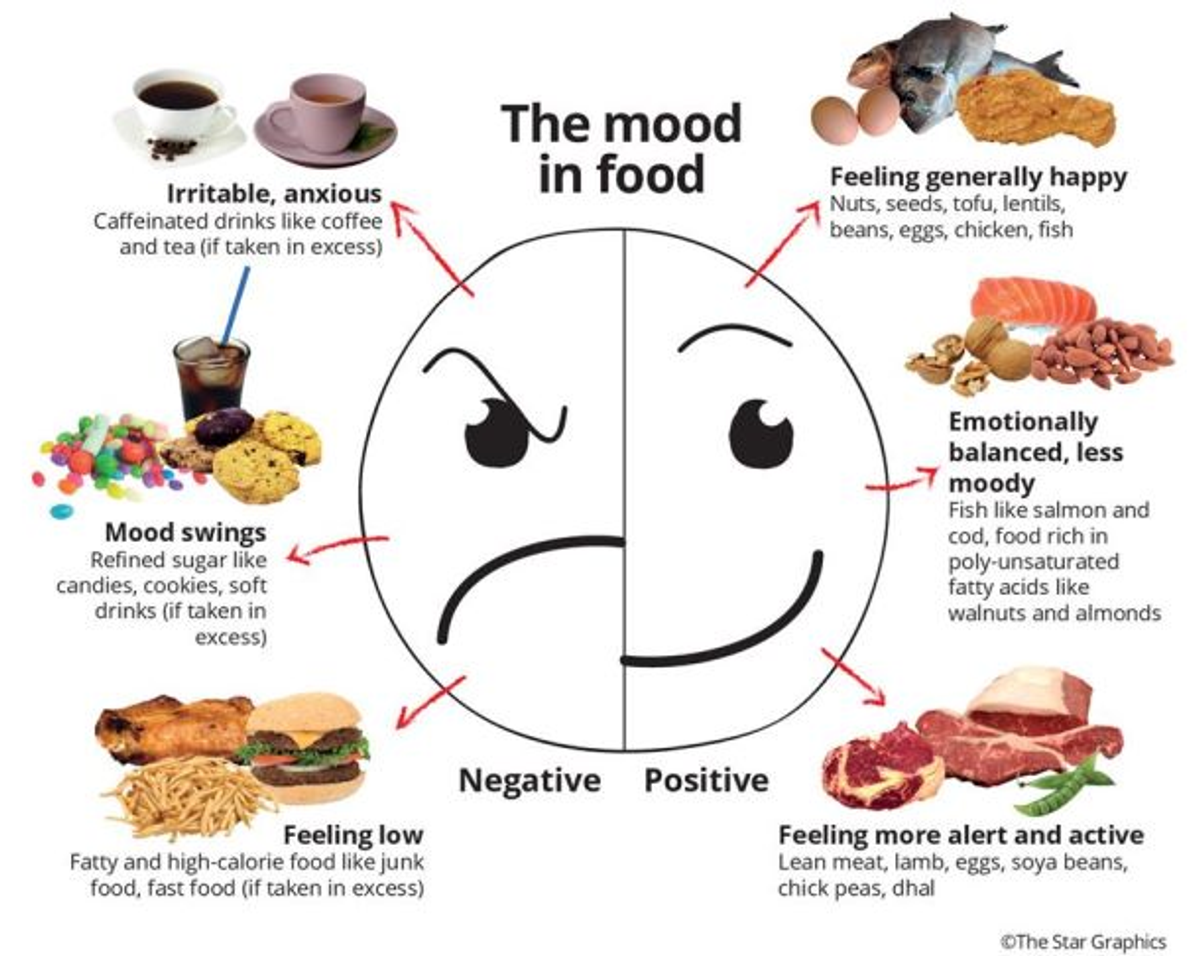College Counsellor/Social Worker News

What can we all do to improve our mental health and wellbeing?
Following on from the last Wellbeing news article about the foundations to good mental health and wellbeing, this newsletter will focus on diet.
Most of us are familiar with the saying you are what you eat, and in a literal sense this is true. Nutrients from the foods you eat food provide the foundation of the structure, function, and integrity of every little cell in your body, from your skin and hair to your muscles, bones, digestive and immune systems. You may not feel it, but you’re constantly repairing, healing and rebuilding your body. While we understand how our diet impact our physical health, it also has an effect on our mental well-being.
Your brain needs a lot of nutrients to function well. Your diet also impacts on your sleeping patterns. Both of which are crucial to students performance at school. When you are at school or studying your brain needs extra energy and eating healthy foods is linked to better concentration. Hence why many primary schools across the world commenced school breakfast programs to ensure students were eating breakfast and give them a good start to the day so they could concentrate and learn in class.
You may have also noticed that your mood can be affected by the types of foods you choose to eat, as well as by how much you eat. Some foods can lift your mood, energy levels and concentration, whole others can have the opposite effect. Snack foods like chips and lollies can cause you to feel grumpy, irritable and low in energy. People often use caffeine for a ‘pick me up’ to feel more awake or alert. Too much caffeine from coffee, tea, soft drinks and energy drinks can disrupt your sleeping patterns, send your heart racing, make it difficult to focus and cause nervousness in some people.
Research has also shown that people whose diets are healthier are less likely to experience depression and likewise those people who eat unhealthier and consume junk foods regularly are at an increased risk of depression. This seems to be the case for adolescents too.
Having a healthy, balanced diet plays an important role in your overall health and wellbeing. Be mindful when making food choices and when eating. Swap some unhealthy choices for some healthy ones.
SchoolTV also provide information, with practical advice for teaching your kids about the benefits of incorporating a healthy diet and good nutrition.
Here is the link to the
Diet and Nutrition edition on SchoolTV
We hope you take time to reflect on the information offered in this edition of SchoolTV and we always welcome your feedback.
If you have any concerns about your child, please contact the school counsellor for further information or seek medical or professional help. Your GP can also direct you to an Accredited Practicing Dietitian who can give you support.
Karen Surian
College Counsellor/Social Worker


